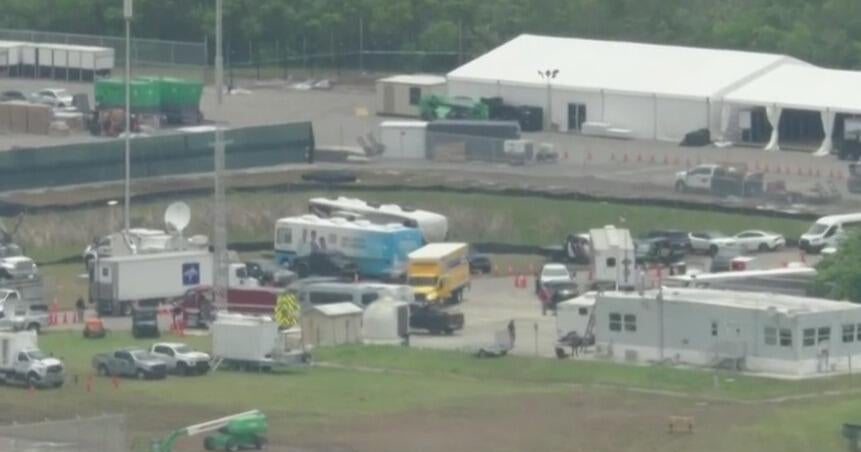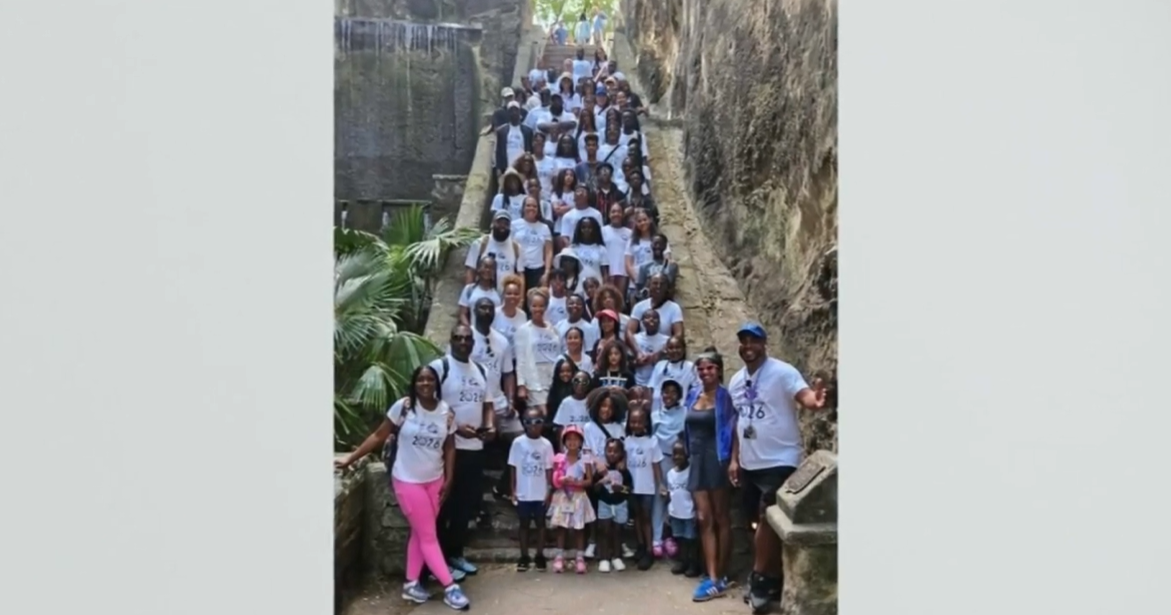As Florida rushed to open a detention center for undocumented immigrants in the Everglades, attorneys for the state Monday argued a judge should reject an attempt by environmental groups to halt the project dubbed “Alligator Alcatraz.”
The state filed a 22-page response to a motion filed by Friends of the Everglades and the Center for Biological Diversity seeking a temporary restraining order to halt the facility.
The groups, in a lawsuit filed Friday, contend that the project, which President Donald Trump is expected to visit Tuesday, threatens environmentally sensitive areas and species in the Everglades and Big Cypress National Preserve.
Florida: Temporary facility poses no irreparable harm
But the state’s attorneys argued, in part, that the groups’ request for a temporary restraining order had not met a test of showing “irreparable harm” from the project, which is being built at the Dade-Collier Training and Transition Airport, a remote site used for flight training. Gov. Ron DeSantis also disputed Monday that the project would harm the Everglades.
“The detention facility will eventually shut down,” the state’s response said. “Governor DeSantis has been clear that the facility is temporary, is being built on an existing airport, and will not require sewer lines. In these circumstances, there are good reasons to expect a successful return of the status quo.”
The state is building the project and has indicated it will seek reimbursement by the federal government. DeSantis has said he expects the site to start operating Tuesday.
Lawsuit contends state agencies violated laws
The environmental groups filed the request for a temporary restraining order and a preliminary injunction Friday along with the lawsuit. They allege that federal and state agencies have violated laws including the National Environmental Policy Act. That law, they say, requires evaluating potential environmental impacts before such a project can move forward.
“In contrast to the significant environmental harms that will result from the construction of a detention center/airport in the middle of a national preserve, and the procedural harm from failing to comply with law requiring an assessment of such harms before proceeding, any harm defendants may shoulder if enjoined would be minimal at best,” the motion for a temporary restraining order said. “DHS (the U.S. Department of Homeland Security) already has and contracts with multiple detention centers in Florida and across the United States. To the extent that DHS claims to have insufficient capacity to detain people in response to its own initiative to ramp up apprehensions, that lack of planning does not require or justify bypassing federal laws to develop a new facility within a national preserve and next to a national park.”
But the state’s attorneys contended that the National Environmental Policy Act places requirements on federal agencies, not states, and that Florida decided to establish the detention center. They also cited an “immigration crisis.”
“The risks from delaying the detention facility, which include both imperiling critical immigration enforcement and endangering detainees in current facilities, overwhelm any incidental environmental harm caused by a temporary facility on an existing site,” the state response said. “NEPA (the federal law), in short, does not prevent the states from engaging in critical, timely infrastructure projects.”
But in seeking the temporary restraining order, the environmental groups pushed back against such arguments.
“Putting aside whether intractable political gridlock over immigration reform constitutes an ’emergency,’ it does not give license to the state and federal governments to simply disregard the laws that govern federal projects affecting environmentally sensitive lands, essential waterways, national parks and preserves, and endangered species,” wrote attorneys from the Earthjustice legal organization, the Center for Biological Diversity and the Coffey Burlington law firm.
The lawsuit, filed in the federal Southern District of Florida, names as defendants Florida Division of Emergency Management Director Kevin Guthrie; U.S. Department of Homeland Security Secretary Kristi Noem; U.S. Immigration and Customs Enforcement Acting Director Todd Lyons; and Miami-Dade County. The county owns the site, which is also partly in Collier County.
The county responds
The county on Monday also filed a response objecting to the plaintiffs’ request for a temporary restraining order against Miami-Dade. It said the state had used emergency powers and “commandeered” use of the airport. The federal government had not filed a response as of early Monday evening.
The case has been assigned to U.S. District Judge Jose Martinez. The state is represented by Attorney General James Uthmeier’s office and attorneys with the Boies Schiller Flexner law firm.



